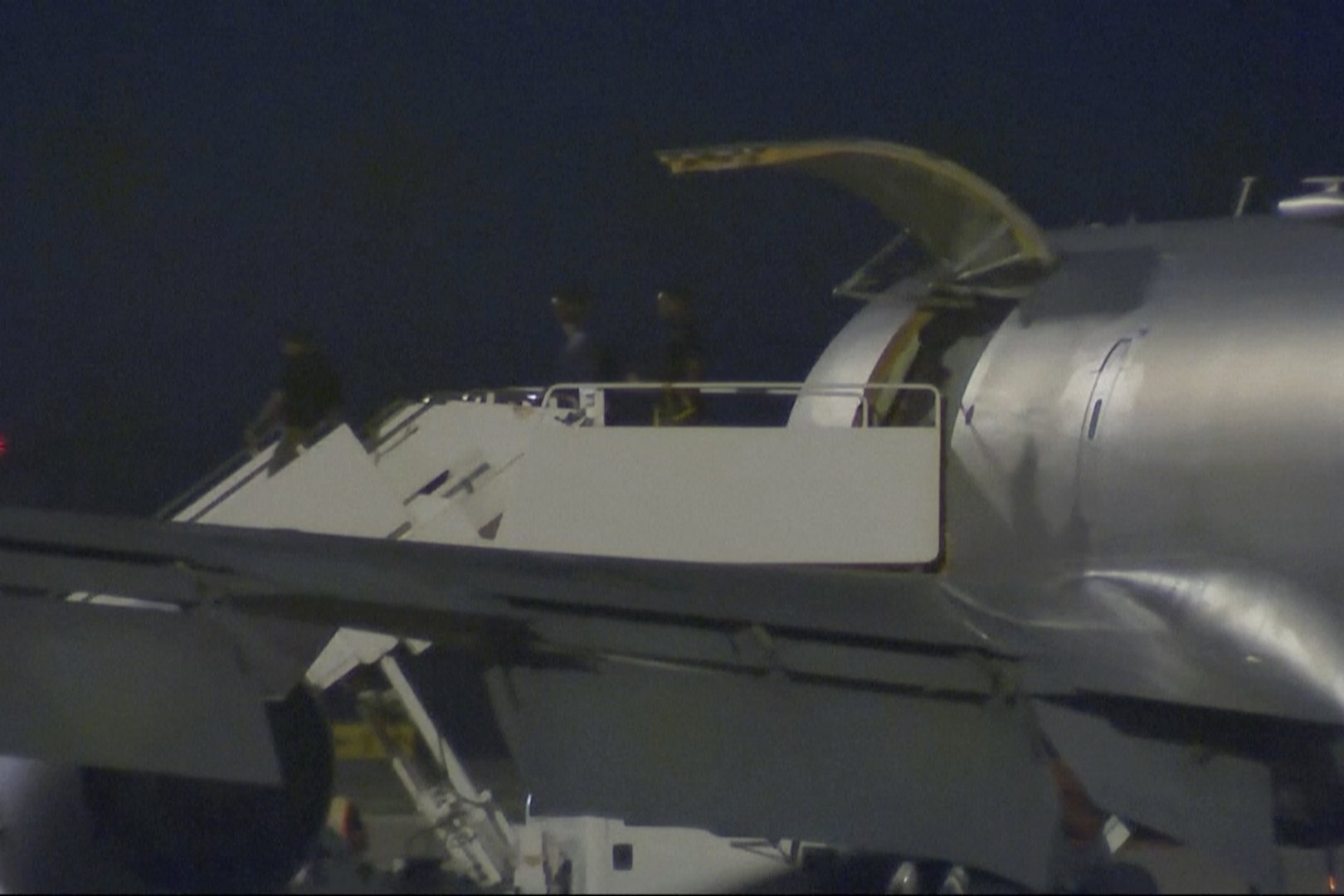© Turkuvaz Haberleşme ve Yayıncılık 2025
An American soldier who surprisingly dashed across the heavily militarized Korean border in July arrived at a U.S. military base in Texas on Thursday after being expelled by North Korea, and faces an uncertain future.
A military flight carrying U.S. Army Private Travis King landed at Joint Base San Antonio-Fort Sam Houston at about 0530 GMT, a U.S. defense official told Reuters. Television footage showed a group of people leaving a plane at the base at that time.
A Pentagon spokesperson, Bryce Dubee, said King was at the base's Brooke Army Medical Center. "The Army’s focus right now is on ensuring the soldier’s well-being and privacy. His status will be addressed at a later time by the chain of command,” Dubee added.
King was expected to be examined at the center, where basketball star Brittney Griner was treated in December after a prisoner swap with Russia ended her 10 months in Russian detention.
King, 23, ran into North Korea from the South on July 18 while on a civilian tour of the fortified border and was immediately taken into North Korean custody.
The U.S. government has said he would undergo an evaluation and then a reintegration process so he can be reunited with his family.
It was unclear if King would face disciplinary action by the U.S. Army, which has treated his case with care. It has so far not called him a deserter, even though he crossed the border without authorization while on active duty.
For its part, North Korea appears to have treated his case as one of illegal immigration.
Its KCNA state news agency said King told Pyongyang he entered North Korea illegally because he was "disillusioned about unequal U.S. society."
The Swedish government, which represents U.S. interests in North Korea because Washington has no diplomatic presence in the country, retrieved King in North Korea and brought him to China.

The State Department said the U.S. ambassador to Beijing, Nicholas Burns, met King in Dandong, China, a city bordering North Korea. King then flew from there to Shenyang, China, then on to Osan Air Force Base in South Korea, before continuing his voyage back to the United States.
King, who joined the Army in January 2021, faced two allegations of assault in South Korea. He pleaded guilty to assault and destroying public property for damaging a police car during a profanity-laced tirade against Koreans, according to court documents. He had been due to face more disciplinary measures in the United States.
Pyongyang appears to have concluded King's criminal background made him "unfit" for propaganda purposes, said Yang Moo-jin of the University of North Korean Studies in Seoul.
Keeping him longer, Yang said, could have risked another incident like that of Otto Warmbier, a U.S. college student who died shortly after he was returned to the United States from imprisonment in North Korea.
"So they might have just opted to use it as a chance to highlight themselves as a 'normal state,' showing that they are no longer using these detainees for political, diplomatic purposes," Yang said.
Jenny Town, director of the Washington-based North Korea project 38 North, did not see the incident reopening the door to stalled U.S.-North Korea diplomacy aimed at curbing Pyongyang's nuclear weapons programs, although she said it might reflect a slightly improving U.S.-China relations, given China's cooperation the return.
Even as King was en route home, North Korea said it had adopted a constitutional amendment to enshrine its policy on nuclear force, and its leader Kim Jong Un pledged to accelerate production of nuclear weapons to deter what he called U.S. provocations.
"While the rhetoric back and forth gets more muscular, and the regional arms race rages on, there is little room for direct diplomacy, especially on nuclear issues," Town said.
China's foreign ministry said North Korea and the United States had requested that China provide assistance for King's return in a humanitarian spirit.
In July, King had finished serving military detention in Korea and was at the airport awaiting U.S. military transport to his home unit in the U.S. Instead, he left the airport and joined a tour of the border area, where he ran into North Korea despite attempts by South Korean and U.S. guards to stop him.
